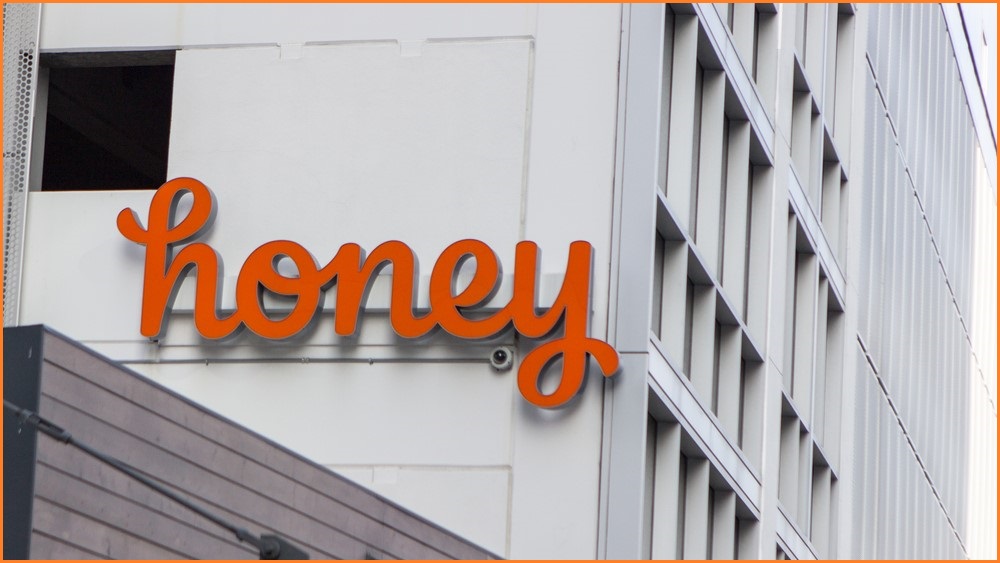Fintech giant PayPal is facing a potential class action lawsuit in the United States after its popular browser extension Honey — which promises to find users the best coupon codes when shopping online — was accused of ripping off consumers and influencers, including some who were paid to promote the service.
American lawyer Devin Stone, who runs the YouTube channel LegalEagle, filed a proposed class action lawsuit with several other YouTubers on 2 January in the state of California.
The lawsuit accuses Honey of preventing influencers from earning money by replacing affiliate shopping links they provided to their audiences (typically used to make sure promoters earn a commission) with Honey’s own links — even if shoppers did not benefit.
“Honey interjects itself at the last possible moment and erases evidence of the real person who was responsible, and takes credit,” Stone said in a video announcing the lawsuit’s filing.
“It looks like Honey opens up a new tab, or refreshes the checkout page, and replaces the creator’s information with Honey’s information — and, most importantly, Honey’s attribution codes,” he said.
“The creator gets nothing.”
The lawsuit accuses Honey of diverting commissions and credit for sales to PayPal and away from influencers and creators who users believed they would be supporting by using their affiliate links.
It also accuses Honey of curating the coupons it finds for users and rejecting those which are not in its best interest, “to the detriment of its users”.
Stone and the other plaintiffs are seeking monetary damages from PayPal and an injunction on Honey’s alleged practices.
They have also set up a website inviting other creators to join the legal action.
“Winning this legal battle would set a vital precedent that empowers current and future creators while strengthening our community,” lawyers said in a statement on the site.
“It will also enhance transparency into how platforms use our work, ensuring that all contributions are valued and respected.”
PayPal vows to ‘vigorously’ defend allegations
PayPal said it disputed the allegations in the lawsuit and would “defend against them vigorously”, in a statement to Information Age.
The company said Honey provided shoppers with "additional savings on their purchases whenever possible" and followed industry rules and practices, including what is known as last click attribution — a widely-used practice in marketing which gives credit to the final interaction or “last click” a consumer makes before completing a transaction.
While the proposed lawsuit against PayPal acknowledged last click attribution as “the industry standard”, it accused the company of using “several deceitful and clandestine methods” to replace a marketer or influencer’s referral code with its own.
This allegedly included the use of what lawyers called “simulated discounts”, in which Honey claimed to have found a discount but it did not actually benefit the consumer, or by showing pop-ups stating no discounts were found — which, when dismissed, would alter the referral trail and claim the last click.
Lawsuit follows NZ YouTuber’s investigation
The proposed lawsuit comes after New Zealand-based YouTuber MegaLag published an investigation into Honey on 22 December.
The creator argued that in his experience, Honey stepped in with pop-ups at the point of sale – sometimes with no coupon codes to offer – and clicking them replaced the affiliate code with Honey’s, diverting the commission to PayPal.
He also accused Honey of ignoring better deals for consumers as part of its partnerships with retailers, despite a quick Google search finding better discount codes.
“Honey pops up right at the end of your purchasing journey, virtually guaranteeing they’ll win that last click,” he said in the video, which has around 16 million views at the time of writing.
MegaLag said he had also personally experienced Honey "poaching” his own potential commissions.
“Honey uses any excuse possible to get that last click from the user,” he said.
“It’s absolutely disgusting.”
Prominent technology YouTuber Marques Brownlee (also known as MKBHD), who has promoted Honey in the past, said in a video that the company was worthy of being deemed “a scam”.
“Obviously if I had known any of this, I never would have worked with Honey,” he said.
PayPal purchased Honey in 2020 for approximately $6.4 billion ($US4 billion) and the service has previously claimed to have more than 17 million users.










